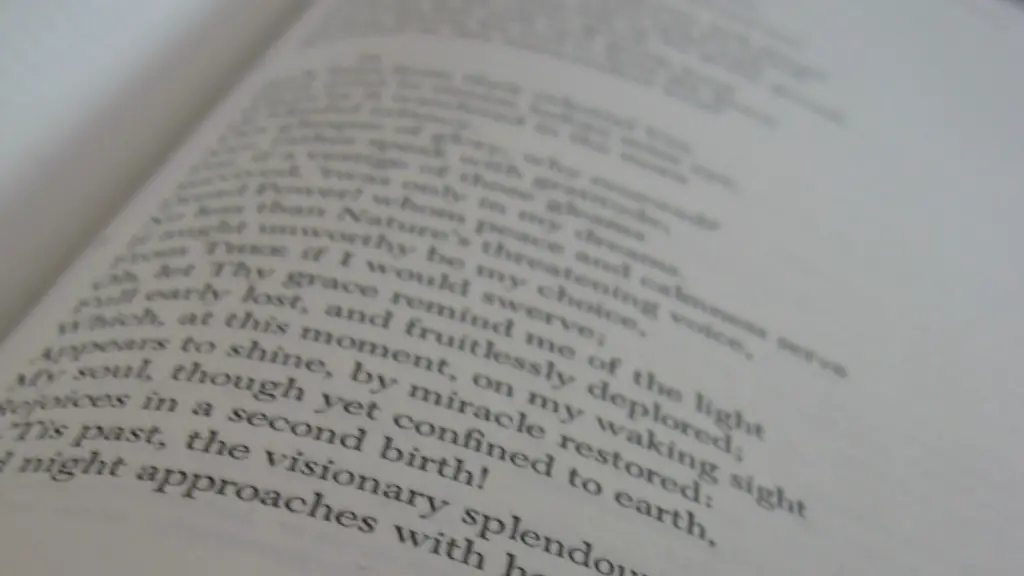Oscar Wilde was a prominent Anglo-Irish writer whose works often mirrored the ideals of English aestheticism. Born on October 16th, 1854, in Dublin, Ireland, Oscar Wilde was a master of literature during the Victorian era. His works blended satire, wit, and philosophy, with a flamboyant and unique style that captivated many. Wilde was influenced by Romanticism, a movement of the early 19th century based on exploring the beauty of nature and introspection, as well as realism and moralism. Wilde’s works often grappled with themes of morality, identity, art, and love. He was also significantly tied to the ‘Aesthetic Movement,’ an art movement that advocated for ‘art for art’s sake’, often through incorporating elements of the decorative arts into the fine arts. Notably, the majority of his works were published after his death.
Wilde produced and published numerous works throughout his lifetime; his most famous works include The Picture of Dorian Gray, The Importance of Being Earnest, Lady Windemere’s Fan, and Salome. Wilde’s poetry also drew immense laud, with notable poems such as The Ballad of Reading Gaol, as well as scores of other poems published under the pen name ‘C.3.3.’ Throughout his works, Wilde often employed dark humor, satire, and wit to deliver moral messages to his readers. Particularly, his writing touched on varying aspects of identity, mortality, morality, and love. The Picture of Dorian Gray remains amongst his most celebrated works; it portrays the tale of Dorian Gray, an individual who maintains a youthful appearance while an immortal painting of his likeness reflects the consequences of his immoral deeds.
Wilde’s other works—namely The Importance of Being Earnest—are also widely taught in academic institutions. This play is a comical story in which two gentlemen attempt to win the affections of two young women. Wilde later adopted the same humorous satire to explore homophobia in Salome, as well as denouncing Queen Victoria’s neglect of her people in Lady Windemere’s Fan. Wilde also wrote a number of essays and treatises; his most well-known treatise is The Soul of Man Under Socialism. In this particular work, Wilde argued that socialism was the best form of government for protecting the autonomy of the individual. Although many of Wilde’s other works grew evermore political, his primary purpose for writing was always to explore beauty and the significance of art.
The Picture of Dorian Gray
The Picture of Dorian Gray, published in 1890, is Oscar Wilde’s most famous novel and his only novel-length work. It is both a Victorian morality tale and a satire on aestheticism, which addressed Victorian England and its conventions. The title character, Dorian Gray, begins life as a naïve, ingenuous youth seeking beauty in the world and moves on to a life dedicated to appearances and pleasure. Through the intervention of a magical painting, his image remains young, while his true-self is magnified and corroded by his immoral whims and choices. His punishment comes to a head in an inevitably tragic and devastating climax.
The Picture of Dorian Gray is a critical examination of the fickleness of youth and the hunger for beauty, as it is explored through the lens of morality. Wilde’s unique style is also prominent, with his use of sharp wit, dark humour, and a slight hint of sardonicism. Gray, in particular, is a quintessentially Wilde protagonist: attractive, passionate, and careless with his decisions, yet ultimately well-intentioned and fundamentally capable of becoming ‘good’. This presents a dichotomy to the reader: it is both a moral tale of the dangers of vanity and pleasure, as well as a comment on the restrictions of traditional morality.
Wilde’s use of symbolism, such as the painting of Dorian Gray, served to examine the nuances of morality and beauty. In particular, the painting serves as a representation of man’s inner self, as Gray’s physical appearance only stays young while his experience of life within the painting deteriorates. He remains two-dimensional, a sort of reflection of how Oscar Wilde perceived the realm of morality at the time. As such, The Picture of Dorian Gray yields a contemporary and provocative insight into Victorian English life, as the message still rings true almost a century later. It remains an even-relevant masterpiece in literature.
The Importance of Being Earnest
Oscar Wilde’s play, The Importance of Being Earnest, is a classic example of his superior wit and sharp wit. The play follows Jack and Algernon—two friends entangled in a romantic entanglement—who both must navigate the expectations of Victorian society while finding themselves in frequent misadventures. Through Jack and Algernon’s shenanigans, Wilde critiques the contemporary conventions of English society. His use of irony further reinforces the play’s classic comedic sensibilities.
The Importance of Being Earnest was Wilde’s most well- received work. It was met with immense acclaim and even popularized the phrase “‘Earnestness is the only thing worth caring about in this world.’ It introduces the two protagonists Jack and Algernon who, adhering to the expectations of the era, adopt a more serious and conservative approach to life. Messing with their personalities, the characters schemes to gain favor with the ones that they love—all the while exposing the absurdity of contemporary customs. Throughout their journey, Wilde mocks conservative etiquette with his infamous use of both satire and wit.
Themes of duality and identity are prominent throughout the play, particularly in Jack’s brief journey of self-discovery. Wilde also introduces themes of conscience and morality, with the focus shifting as Jack comes to terms with the consequences of his actions. In the end, the Importance of Being Earnest’s themes are ultimately a commentary on Wilde’s opinion that all constraints—ethical, social, or otherwise—are arbitrary and illusory, and that it is foolish of us to take them seriously. The play continues to this day, offering a timeless blend of satire, wit and moral exploration to the theatre experience.
Lady Windemere’s Fan
Lady Windemere’s Fan, first produced in 1892, is perhaps Oscar Wilde’s most overtly political play. It follows Lady Windemere, a good-natured, but naive young woman whose morals are tested when rumors of her husband’s infidelity surface. Lady Windemere and her husband, Lord Windemere, are the focal characters in the play. The action and conflict is driven by Lady Windemere’s naivety when presented with a moral dilemma. This forces her to confront a wide array of implications, driving the play forward.
Behind this confrontation of morals and naivety stands an even larger theme of Victorian English life itself. Through characters such as Mrs. Erlynne, Wilde explores the hypocrisy of Victorian English society by exposing the multiple masks that its members adopt in order to stay in line with societal standards. The play is also quite critical of the royal government, as Mrs. Erlynne, as well as other characters, speaks to the neglect of the people at the hands of the monarchy. The play is also a social critique, as it explores themes of gender and class with respect to the highbrow traditions of Victorian England.
Lady Windemere’s Fan is also significant for its influence on modern theatre. Wilde’s style of delivering moral messages in a comedic way laid the foundation for a range of social comedies that have come since. The play’s success upon release helped to establish Oscar Wilde’s place in the public sphere and secure his place as a playwright of notoriety. Lady Windemere’s Fan remain a popular classic to this day, with multiple adaptations and recreations all over the world.
The Ballad of Reading Gaol
The Ballad of Reading Gaol is a poem written in 1898 by Oscar Wilde while he served two years in gaol for ‘gross indecency’. Written shortly after his release, it reflected Wilde’s experience of the prison, while also lamenting the death of an inmate executed by hanging. Wilde conveys expressions of sadness and despair in the poem, as he speaks to humanity and life’s fragility. The poem speaks to the futility of life and the despair of the incarcerated.
The poem is narrated in the first-person by Wilde, who attaches the plight of the jailed to the story of his personal experience. The poem was written outside the prison, and Wilde subsequently presents the prisoners as human beings, plagued with both corporal and psychological despair. Themes of death, misery, guilt, and injustice are explored throughout the poem. The poem paints a dark picture of the futility of life as a prisoner, a feeling that reverberates even after one leaves the prison.
The Ballad of Reading Gaol serves as a testament to Wilde’s ability to blend personal experience with broader moral and social implications through his writing. Through its melancholic nature and exploration of identity, Wilde seized the opportunity to reflect on the prison conditions in Victorian England. It reflects Academy’s desire to protect those in its jurisdiction, while also ensuring that justice is rightly served. The poem has since become one of Wilde’s most celebrated works, and its popularity has only increased since its premiere.
The Soul of Man Under Socialism
The Soul of Man Under Socialism is an influential essay written by Oscar Wilde in 1891. This essay is a political tract that advocates for socialism and its effects on the individual. It speaks to the importance of socialism in securing the autonomy of the individual in the face of the harsh and confining conditions faced by the lower classes of Victorian England. The essay suggests the idea of a utopian society, composed of collective effort and individual autonomy.
The essay is a synthesis between Wilde’s well-known Victorian aesthetics and his newfound progressive political views. The piece contains sharp wit and crafts sharp social critiques while pitting socialism as a means of efficiently providing a framework that defends the autonomy of an individual. Wilde also touches on the idea of individualism, a concept popularly embraced by the Victorians, and how it essentially leads to the exploitation of the individual. He ultimately paints socialism as a more efficient and moral alternative.
The Soul of Man Under Socialism was Wilde’s most renowned political work and is still widely-talked about in the academic sphere. The essay’s analysis of the negative impacts of Victorian customs, as well as his calls for socialism, has provided a framework for modern political debates on the same issues. Although its content is widely disputed, the essay holds tremendous historical significance and remains as one of Wilde’s most renowned and widely read works.
Aesthetics and Romanticism
Oscar Wilde was heavily influenced by both aesthetics and Romanticism, two movements that thrived in the 19th century. Wild, who himself was a prominent figure in the Aesthetic Movement, was praised for his artful, intricate writing style. Additionally, he often employed the use of satire and wit in his pieces in order to draw out deeper messages of moral introspection. His literary works transgressed the conventions of 19th century English literature and presented a unique, daring perspective of beauty and morality.
The Aesthetic Movement advocated for “art for art’s sake”, a belief popularized by Wilde himself. It rejected Victorian sensibilities, arguing that art should be free from moral judgement, and instead focus on beauty and technical precision. As such, Wilde’s works often catered to this idea—particularly his use of symbolism and complex rhetorical techniques—while simultaneously introducing concepts of morality and debate.
Romanticism, another prominent movement in 19th century literature, served as the foundation for Wilde’s works. At its core, Romanticism is based on exploring the beauty of nature and introspection. Wilde exhibited this through his works, while speaking to a range of themes that questioned the conventions of Victorian society. His theatrical pieces often exhibited a subtle hint at the movements of Romanticism, while his essays and treatises were driven by a moral exploration of identity and morality.
Wilde’s works remain iconic to this day, without much dispute as to their beauty and artistry. As a pioneer of both aesthetics and Romanticism, Wilde succeeded in creating his own, distinctive style that has since been recognized in academies and literary circles alike. As such, the ideas and themes presented in his works are still relevant and inspiring today





